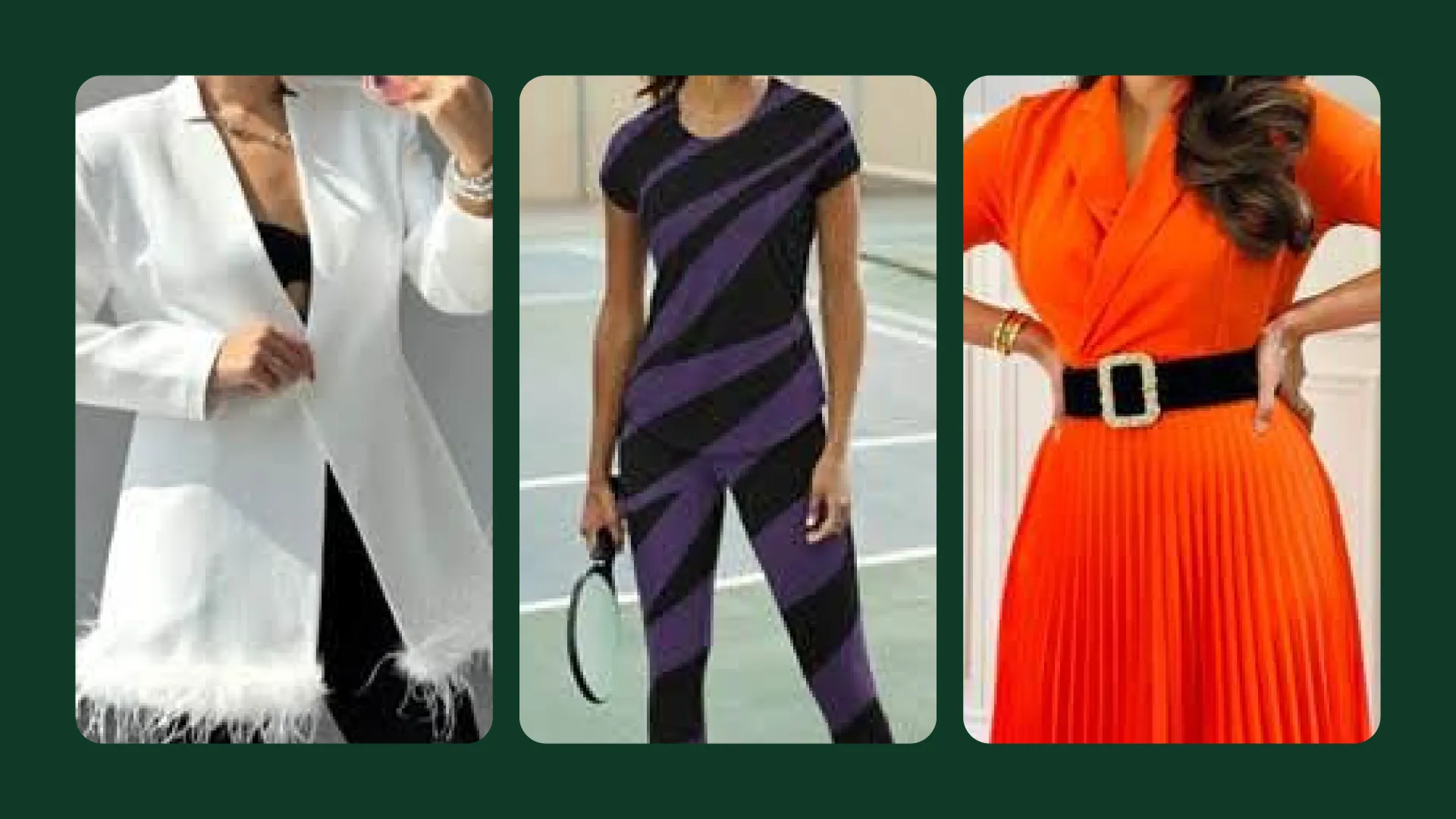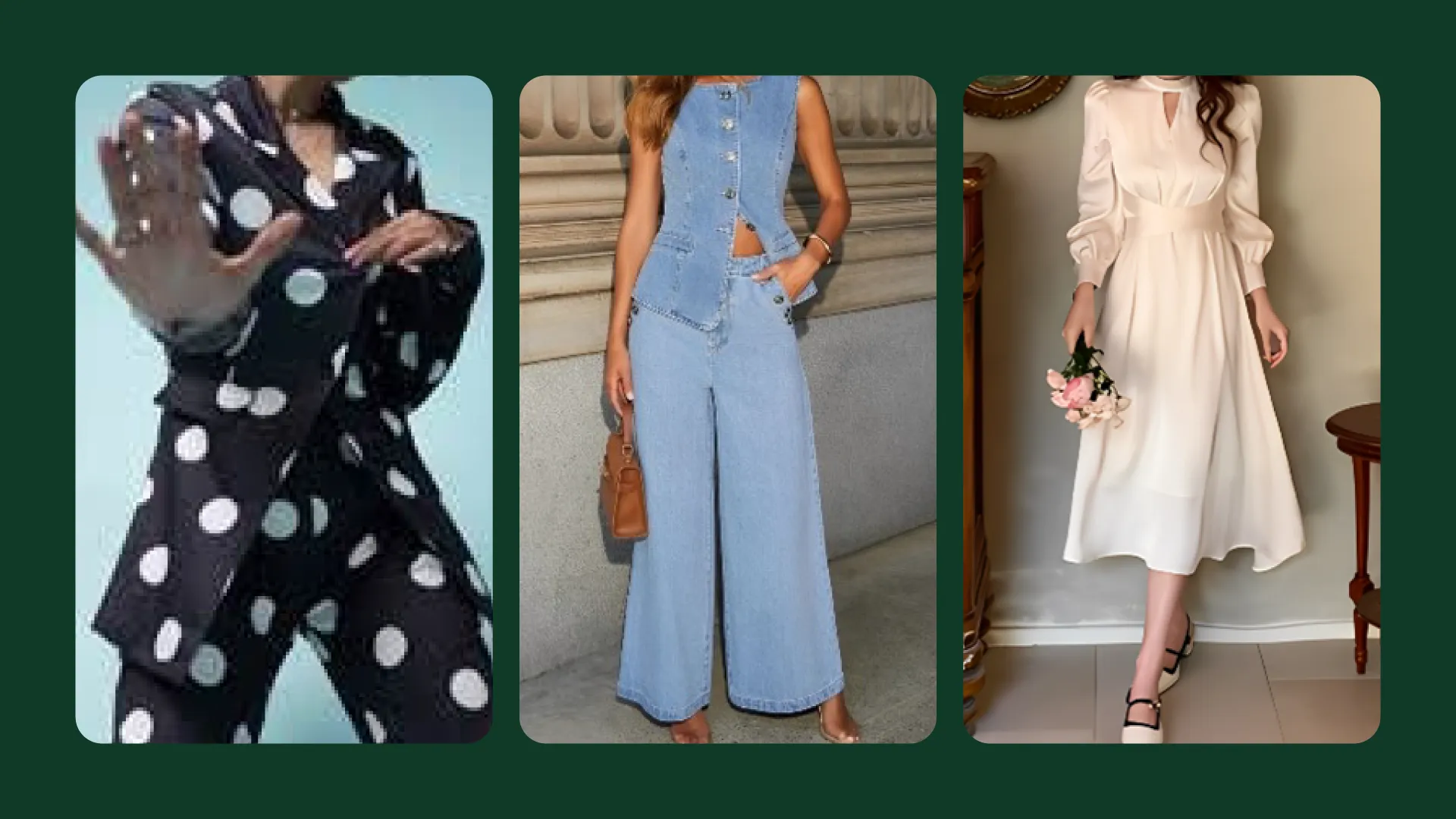Customers
Stylesplash models stylish success with conversational commerce using WhatsApp
|
September 15, 2025
Customers
|
September 15, 2025

A recent success story highlighted a 3.5x lift in customer conversations in a test of website to WhatsApp ads. We chatted with Stylesplash Founder, Dhwani Kothari, to learn more about the company’s winning strides over the past decade.
Stylesplash India Fashions delivers a curated selection of premium women’s styles. The Mumbai-based ecommerce retailer helps shoppers “discover fashion that speaks to you” by prioritizing conversational commerce using WhatsApp.

What’s the story behind Stylesplash, its history and what makes it unique?
DHWANI KOTHARI: We deal in international women's wear. We’re a pure e-commerce retailer celebrating over 10 years in business. When we started, buying apparel online was still a pretty new concept in India. Shoppers weren’t sure about buying online due to wanting to touch the garments and check fit.
We launched the business on Instagram, then Facebook, and debuted our website later. We started with Facebook ads and did really well with a low cost per order. There was less competition back then in apparel e-commerce and digital advertising.
We cater to women ages 25 to 55 who want quality apparel that’s unique, with great fit and style. Our customers don’t mind spending a bit extra to feel unique—they get to walk into a room knowing no one will be wearing the same outfit.
How important is digital marketing through social media to Stylesplash's success?
Without Instagram, Facebook and WhatsApp, we wouldn't be at the stage that we’re in. They’ve been fundamental to our growth.
It was easy to launch the business on Instagram and Facebook since there was no barrier to entry. Those channels helped us lay our foundation. We quickly crossed 3,000 followers, then 5,000. But reaching 10,000 was not as easy.
When we started advertising, we got a very good response from our audience. Our customers really liked our product, and Meta channels really helped us get the word out.
How important is it to instantly connect with a customer and engage in a conversation with them using WhatsApp in the moment that they are considering your apparel and fashion goods?
WhatsApp is an unsung hero in our business. Instagram gets a lot of the spotlight because it’s so visual, but WhatsApp is a backbone for us.
When we started Stylesplash, a lot of people were still very apprehensive about buying clothing online. Every woman has different size and fit requirements. So how do you sell to women who have so many questions, when all these questions can’t be answered on a public platform like Facebook and Instagram?
Not everyone is confident in asking questions about waist and bust size. They want a private and secure platform for those kinds of questions, and that’s where WhatsApp comes in.
I used to take matters into my own hands and personally answer queries on WhatsApp. Since day one, we’ve highlighted our WhatsApp number on our website, Instagram and Facebook.
We get a lot of customer queries asking, “Will this size fit me?” WhatsApp helps us to convert customers by resolving these queries in a private manner.
Customers don't hesitate to ask questions on WhatsApp. And what better way than to have your question answered than by a fellow woman who has great product knowledge and really knows how to boost a shopper’s confidence? That’s really helped us in this growth journey.
What challenges did Stylesplash face that inspired the company to start using website ads that click to WhatsApp?
We were growing steadily and at one point we hit a plateau. Also, like many businesses, we had many challenges during the pandemic. When we were ready to grow the business again, we saw a higher cost per order, lower clickthrough rates and a lot of abandoned carts, so we decided to try something new and experiment with WhatsApp.
As we were trying to figure out what the issues were, we looked at the questions coming in through WhatsApp. We realized we’d been missing a truly valuable line of communication. Addressing shopper questions helped us convert what would have been an abandoned cart into a completed sale.
We wanted more sales, so we aimed to improve engagement by answering questions and converting those opportunities into orders.

How do you ensure that the conversations on WhatsApp remain personal and effective when you're addressing customer queries?
First, we make sure that we tell customers that they’re interacting with a style expert from our team. Here at Stylesplash, from the very first question, they’re welcomed by a human and 99.99% of the time it will be a woman answering the queries.
That gives customers confidence that they can ask complex questions, inquire about other outfits, or explain an event that they’re attending if they would like some style recommendations. They’re not limited to pre-set questions. There's a lot more freedom.
Conversational commerce is key for us. We want things to go smoothly, with natural conversations that can be funneled into completed checkouts.
We also aren’t too pushy. We don't use WhatsApp to do a hard sell. WhatsApp is for providing information and recommendations. We try to solve shoppers’ problems. We provide honest information. We give them personalized guidance on sizing. If a garment will not fit them well, we’d rather tell them not to buy it. There’s no point in a customer getting an outfit that’s too small to wear and then they never come back to us.
Longer conversations happen on WhatsApp and our consultative commerce strategy can help turn a dissatisfied person into a happy, loyal customer. Customers gain a lot more confidence in us, because they find that we are giving advice that is genuinely benefiting them, so they end buying more over time.
That’s the longer-term approach that we take and it’s all done through WhatsApp.
How do website ads that click to WhatsApp improve the customer experience for your audience?
The customer journey is very seamless with website ads that click to WhatsApp. Before, customers would land on the website and find it difficult to communicate with a representative. There was a five- to six-step process to go to the contacts page and send a message. With WhatsApp, it’s reduced to one click.
It’s mutually beneficial for customers and for us. It helps us solve a lot of problems by getting a lot of feedback very quickly.
We can recommend the perfect A-line black dress for that customer who hasn’t found it yet. We can even eliminate the hassle of locating it on the website and ordering. We’ll just ask for the necessary details and place the order on a customer’s behalf.
For many businesses, it can be difficult to get direct customer feedback, but we've started seeing people praising our representatives by name on review sites. It’s heartwarming proof that we’re doing something right. It’s a testimony to the good conversations they’ve had with us on WhatsApp.
WhatsApp definitely helps us improve customer satisfaction. It’s been valuable in cases of a special anniversary or a big business meeting, when a customer needs an outfit in two days and must have their express shipping request handled by 4pm. These last-minute rush requests can only happen on WhatsApp.
Since implementing website ads that click to WhatsApp are you getting more qualified customers?
Yes, definitely. With Instagram and Facebook, we’re always happy when someone asks a question. But when we get a customer message on WhatsApp, we feel like half of the job is done already. That person really wants something and they've made a choice to chat with us.
They’re already half sold on the idea of buying the dress, they just have a serious question on the fabric or length. Their intent is really high and that's the difference between WhatsApp and other platforms. Our job then is to provide a genuine solution and the sale is as good as done.
I think the lesson is very clear. It's not just good to have a campaign using website ads that click to WhatsApp, it’s now a must-have.
Does WhatsApp help with cross-selling and upselling?
The mindset of a shopper is very different when the chat is on WhatsApp compared to other channels. They are very friendly and personal. They share a lot with us about their plans to wear the particular outfit they’re interested in, such as for a celebration or another activity. That makes it easy to suggest add-ons such as a fragrance, belt, or another fashion accessory.

How has your use of WhatsApp grown and expanded over time? And how has WhatsApp helped you reduce abandoned shopping carts?
Over the past year, the number of conversations that we're having on WhatsApp has increased by about 40%.
We’ve started using instant, automated messaging through WhatsApp for abandoned carts because it's not possible to always send messages manually in that situation. We include a photo of the outfit the customer chose to help remind them visually how much they liked it.
While Instagram and Facebook help us reach customers to get them to add merchandise to their cart, the journey from abandoned cart to conversion happens because of the WhatsApp messages.
When we get abandoned carts, we see those as an opportunity. A shopper has shown interest and intent, they’ve almost made the purchase, but there's something missing that led to them not hitting the last button for checkout. This gives us an opportunity to follow up with them via WhatsApp. We can check if they need more information on the item or if they experienced a technology issue and work to convert that customer.
We’ve added a verified tick for our brand on WhatsApp channel as well, so that also boosts confidence.
What about returns?
We had a challenge with returns because a lot of customers do impulse buying and when a delivery arrives, they don’t want to accept it and that results in a return to origin. It’s a very serious problem for e-commerce fashion brands. To address that, for every order we send a WhatsApp confirmation. Not every customer replies, and we still send the order either way, but requesting a reconfirmation has reduced returns dramatically.
If the customer placed a cash on delivery (COD) order, sometimes we’ll make them a special offer if they convert from COD to prepaid, and that helps us too.
In recent years you’ve worked to get your overall cost per order down to pre-pandemic levels. How is that going?
It’s not back to pre-pandemic levels, but it’s been getting better since last October. We’ve seen lows in return on ad spend (ROAS) of about 1 to 2. We’ve achieved a ROAS of 11 or 13 — even 15 at times, which is very good for the apparel industry and our price point.
How do WhatsApp, Instagram and Facebook work together to power your overall marketing strategies?
All three platforms work very well in sync. While Instagram and Facebook help us reach newer prospects as well as loyal and look-a-like customers, the queries and conversations happen on WhatsApp. For engagement right in the middle of the funnel, WhatsApp is key.
We run catalog ads on Facebook so that if a customer is searching for a pink dress, the algorithm will try to show them pink dresses from our collection and there will be a high chance of them sending us a WhatsApp message. It’s part of a cohesive funneling strategy we have across the three platforms.
Many fashion brands get carried away by using celebrities in very slick ads and videos. Nowadays, that makes a lot of women feel that “this is not for me, this is for models on a runway” or “I won’t look good in this.” Some of those brands seem very inaccessible.
What’s great about WhatsApp is that through all these conversations with us, women feel a lot more confident that a Stylesplash outfit will suit them. WhatsApp promotes accessibility for our brand. I think that's a big, underappreciated point.